Competition

Competition
Marine Aquascaping Competition
| Name of team members | Team 1: KWEK KE YING, SHERELLE TIAN DAOJIA ELIJAH GERMAINE TAN HUI WEN Team 2: SITI SARAH BINTE ABDUL RAZAK YOGANATHA GANESH TARUN TAN SHI SHAN |
|---|---|
| Achievement/Award Attained | Participation |
Two teams of Primary 5 pupils represented the school in the Marine Aquascaping Competition, held in conjunction with the East Zone STEM Festival at Victoria Junior College on 2 August 2019. The competition aims to raise awareness of the biodiversity of the marine ecosystem and the need for conserving and protecting the ocean.
The pupils were undaunted, despite this being their first time participating in such an event. They put in a lot of effort researching on how to set up a Nano marine aqua system as well as on marine conservation issues. On the day of the competition, the pupils worked well as a team and were able to engage the judges during their presentation.
The teachers were very heartened to see how the pupils took their own initiative to prepare for the competition and support one another. It was a meaningful and enjoyable day out for all of us involved.
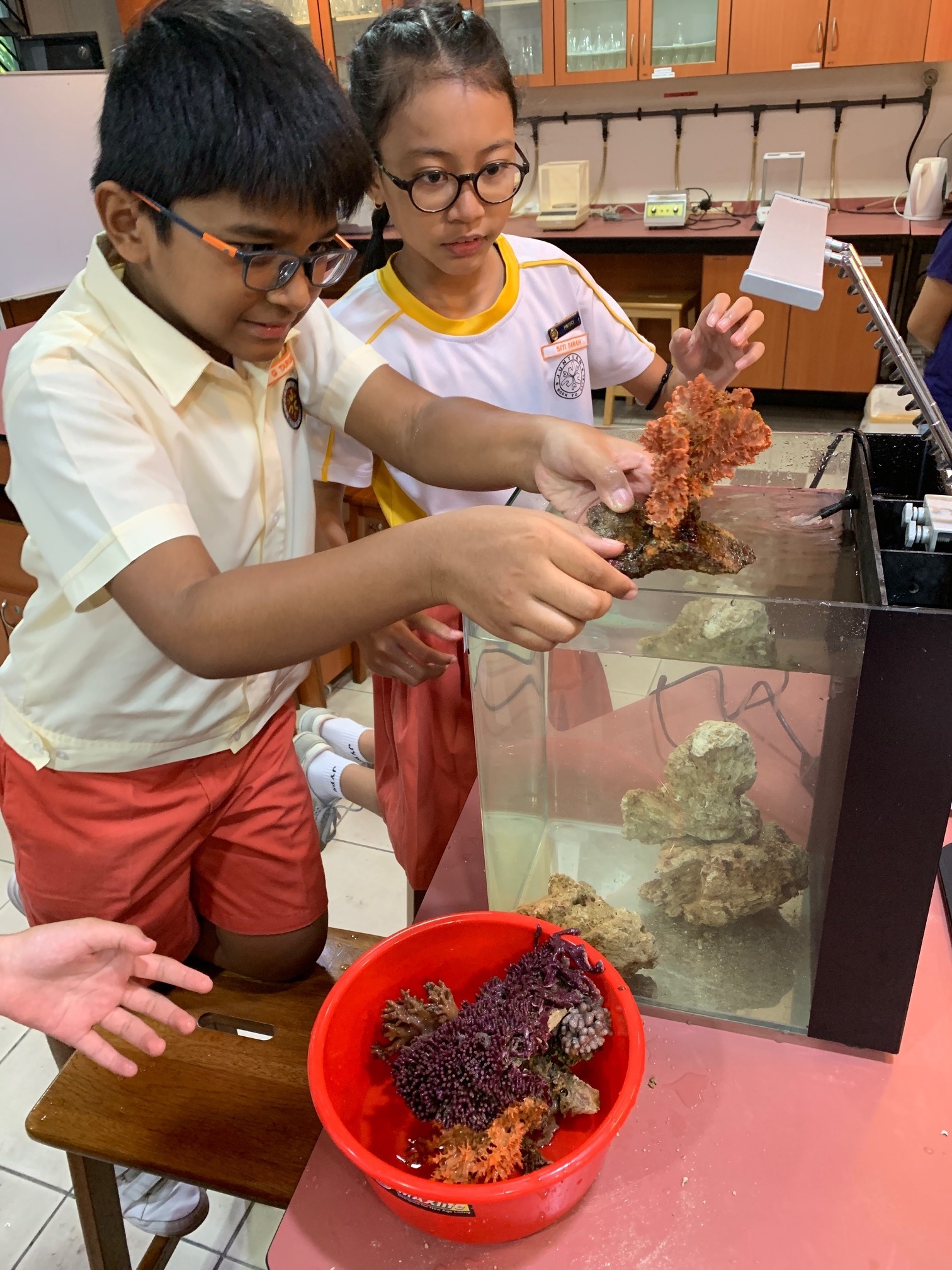
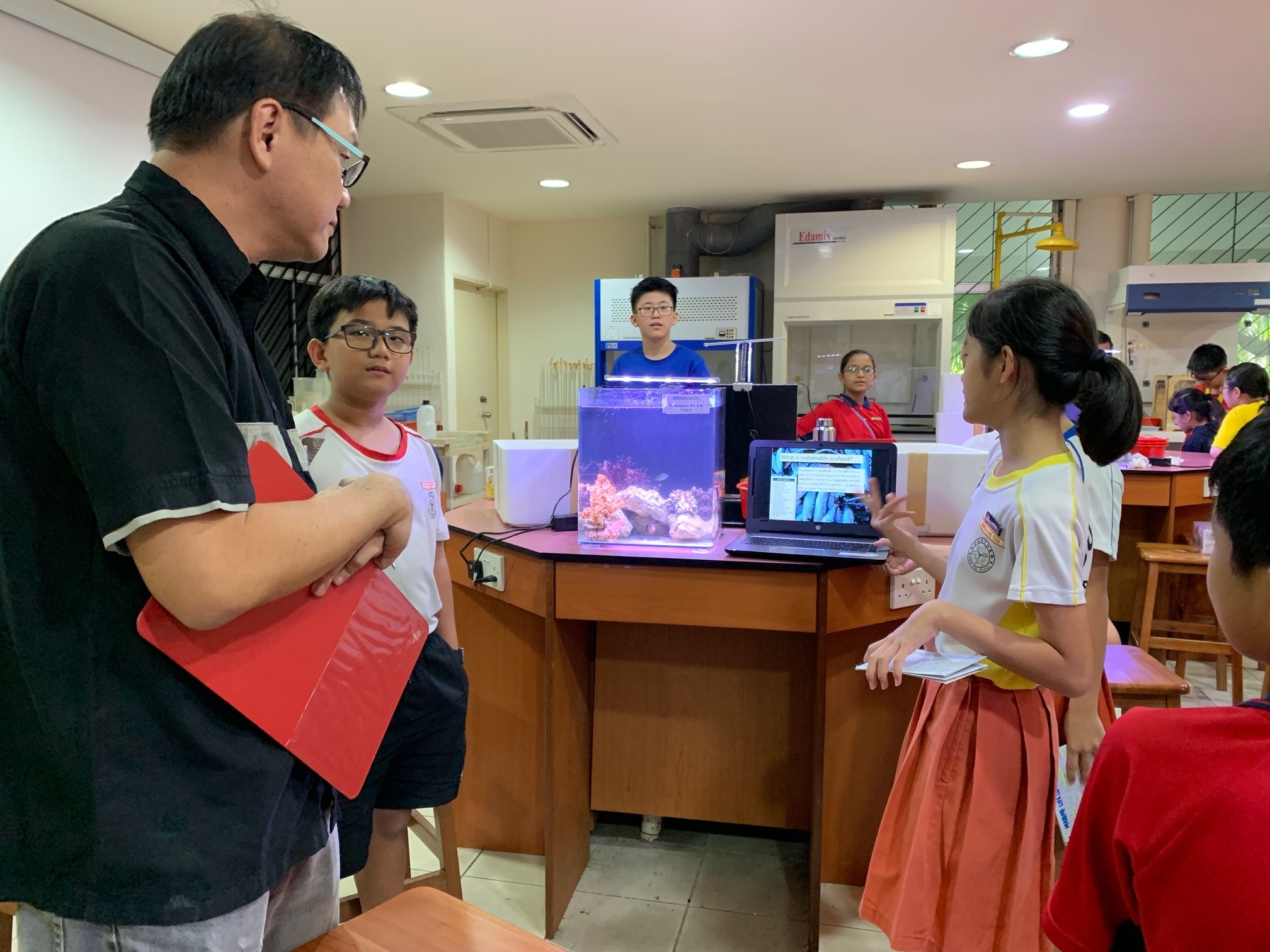
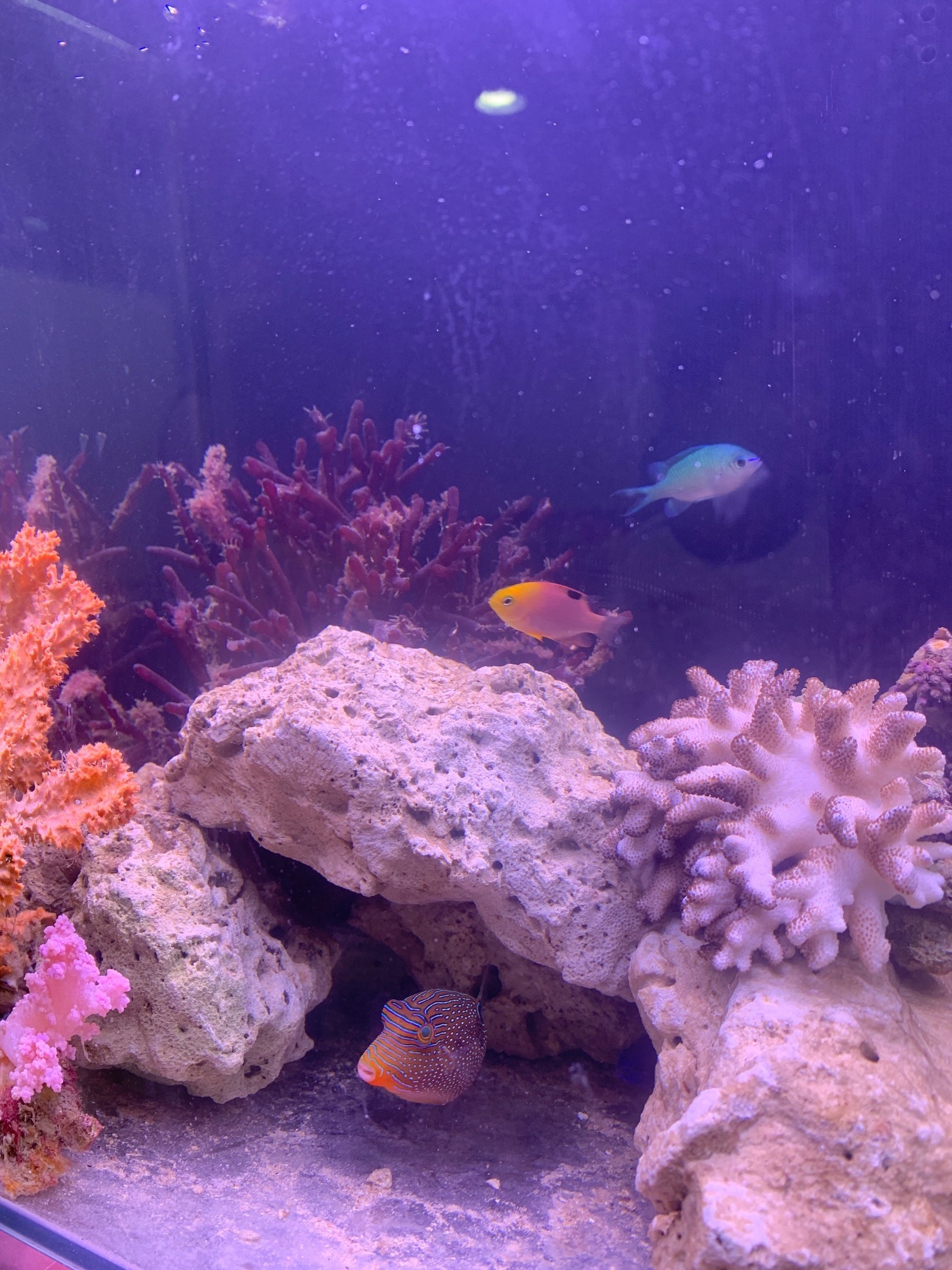
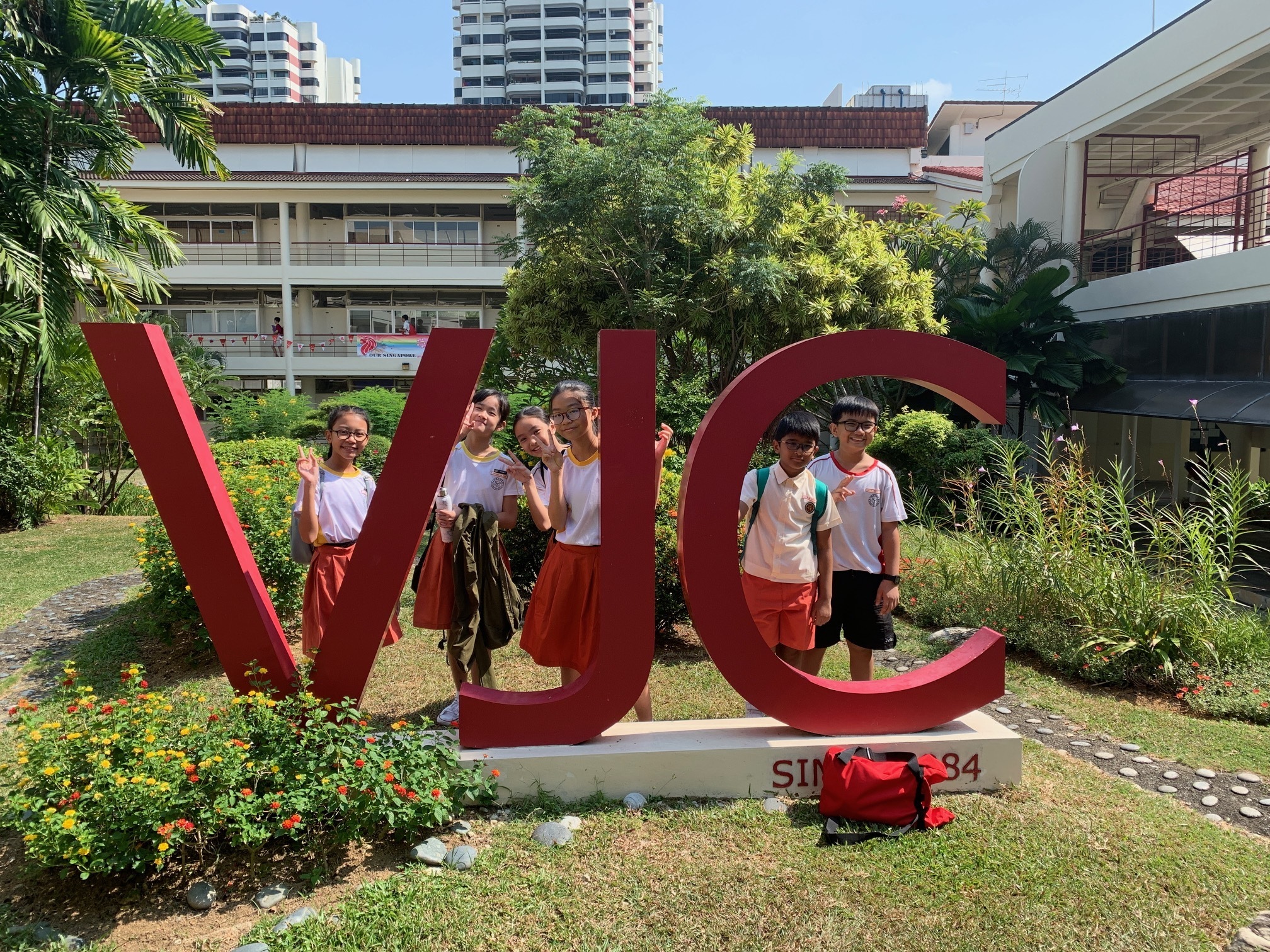
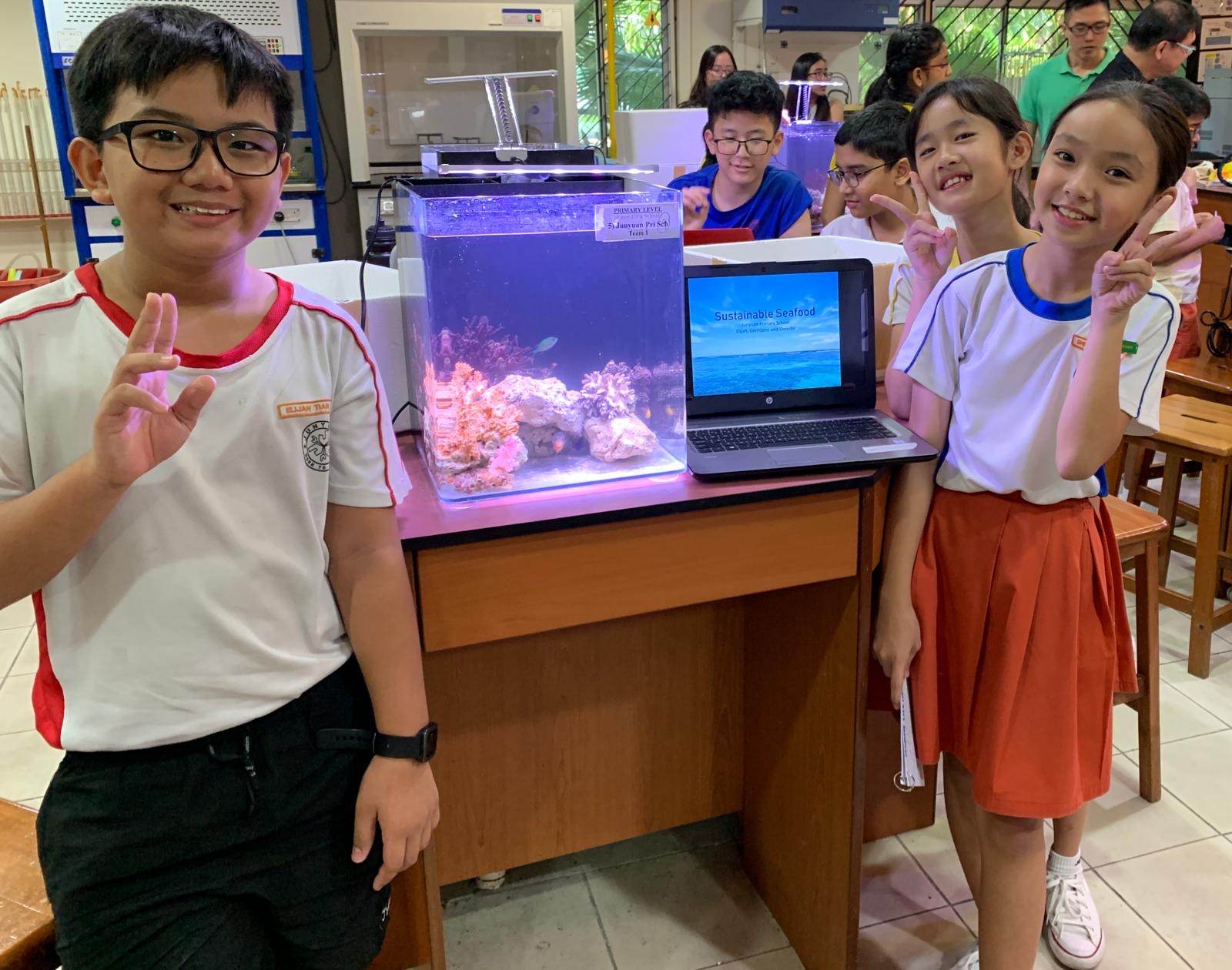 Team 1: TIAN DAOJIA ELIJAH GERMAINE TAN HUI WEN KWEK KEYING, SHERELLE |
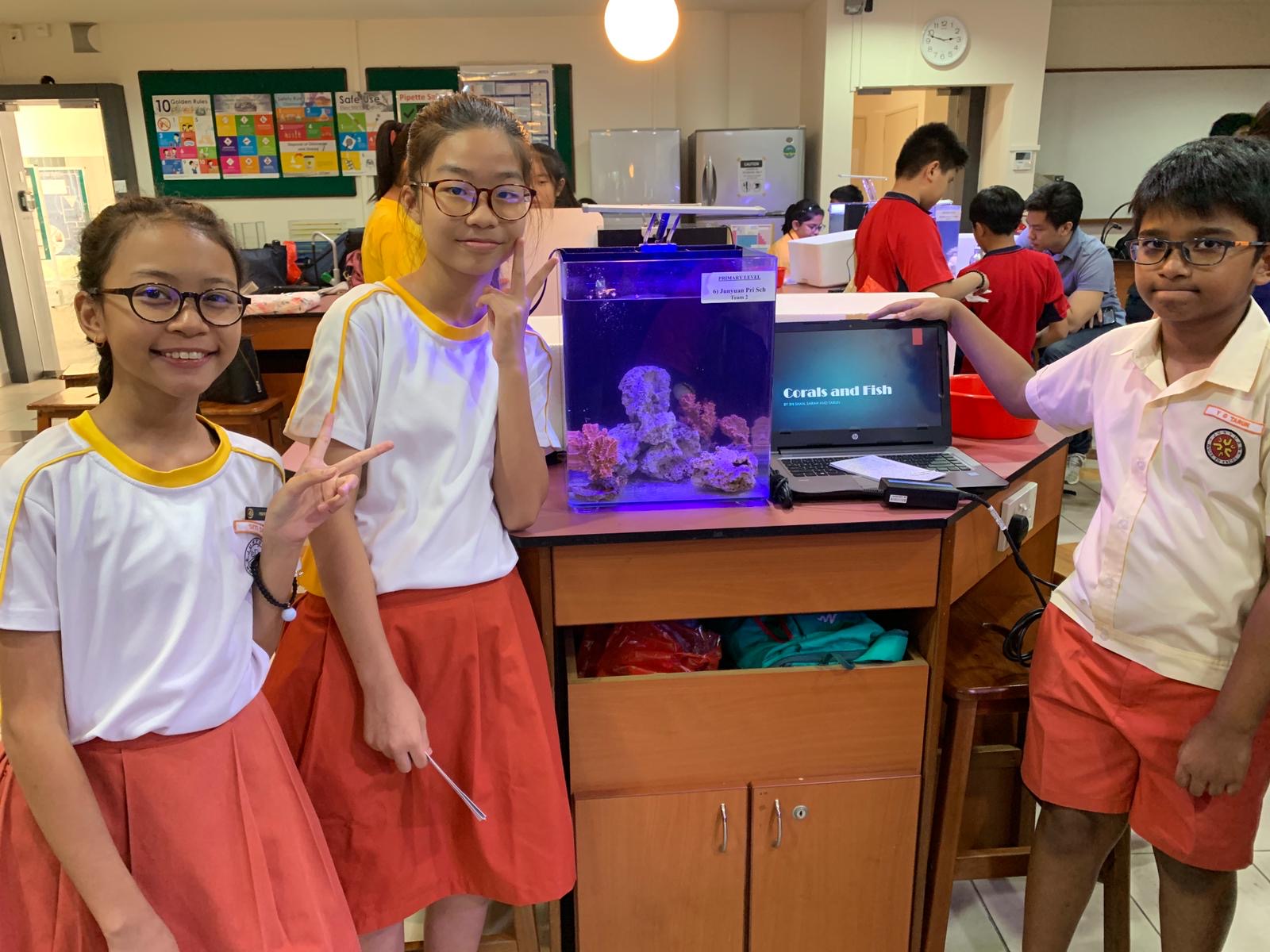 Team 2: SITI SARAH BINTE ABDUL RAZAK TAN SHI SHAN YOGANATHA GANESH TARUN |
G!nnovation Challenge 2019
| Name of team lead(s) | Mdm Joelyn Cheah Miss Beatrice Grace Lim |
|---|---|
| Name of team members | Mr Wang Shing Huei Mrs Widdy Tey Mr Ivan Ong |
| Achievement/Award Attained | 2nd Place 3rd Place |
In line with the rationale behind the G!nnovation Challenge organized by NEA, the school responded to the clarion call and put forth her support and contribution. The Science department’s innovation team trained and prepared 2 teams of P5 students to contribute through their participation in the G!nnovation Challenge.
Overall, the teams promoted environmental stewardship amongst students through increased awareness on environmental problems via the application of STEM (Science, Technology, Engineering, Mathematics) in their projects. The teams were encouraged and guided to think out of the box to arrive at innovative and creative solutions that were relevant, effective, efficient and feasible to solve the problems.
Specifically, to encourage their peers to recycle right, one team educated their peers on what they can and cannot recycle through a humorous self-directed and self-produced video. In addition, their knowledge of Micro:bits were put into application in real life to track the rate of recycling. On the other hand, the other team gamified the experience of recycling plastic bottles by designing an arcade game-like bin.
Due to their efforts, the rate of recycling went up during the project implementation period. Feedback from students also showed their increased knowledge and application. The teams came in 2nd and 3rd in the finals of the G!nnovation Challenge. Hence, through the GInnovation Challenge, students were inspired and motivated to become more aware of environmental problems, to think of innovative ideas, and to take actions to solve real-world problems.
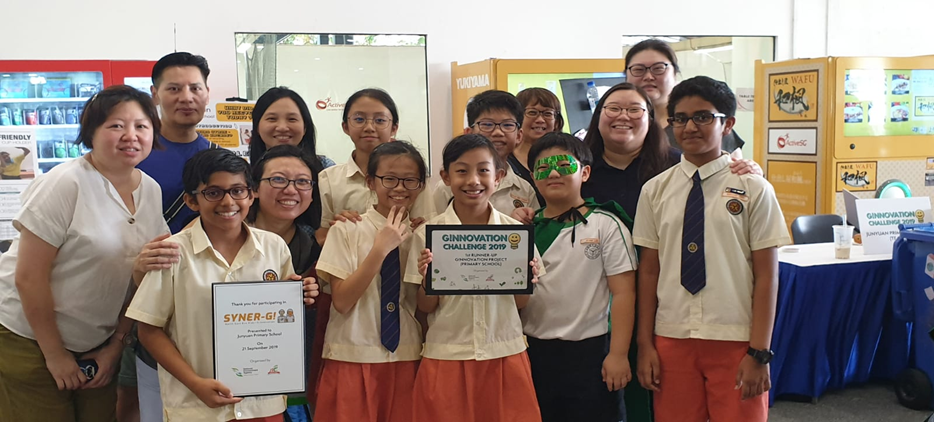
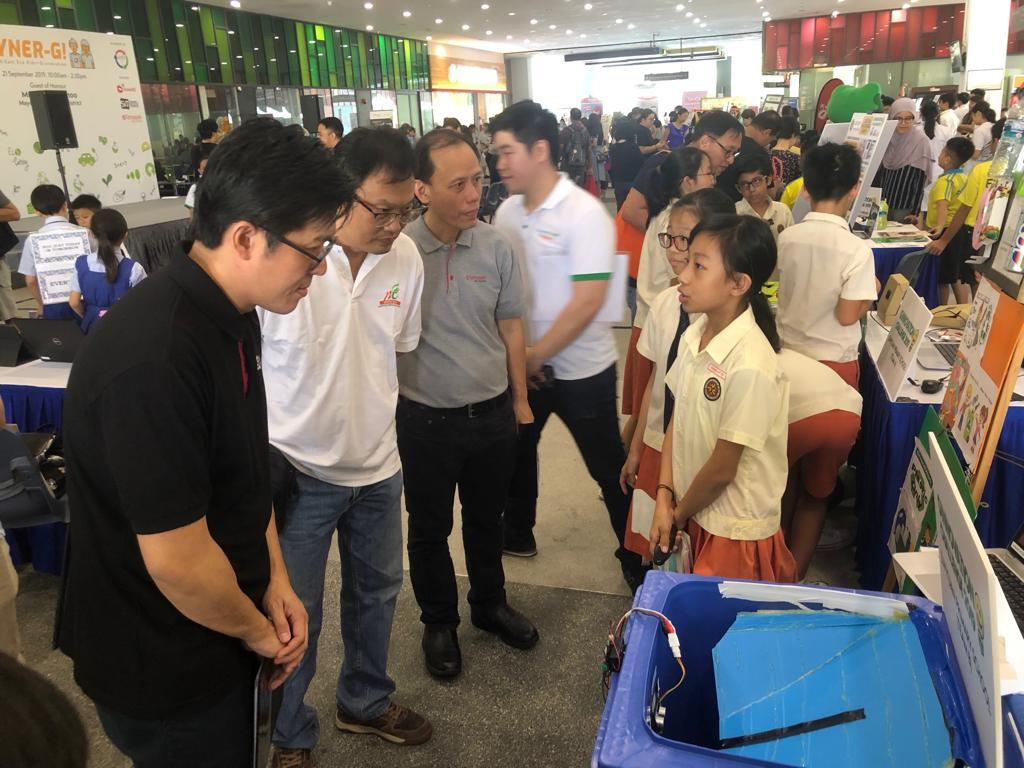
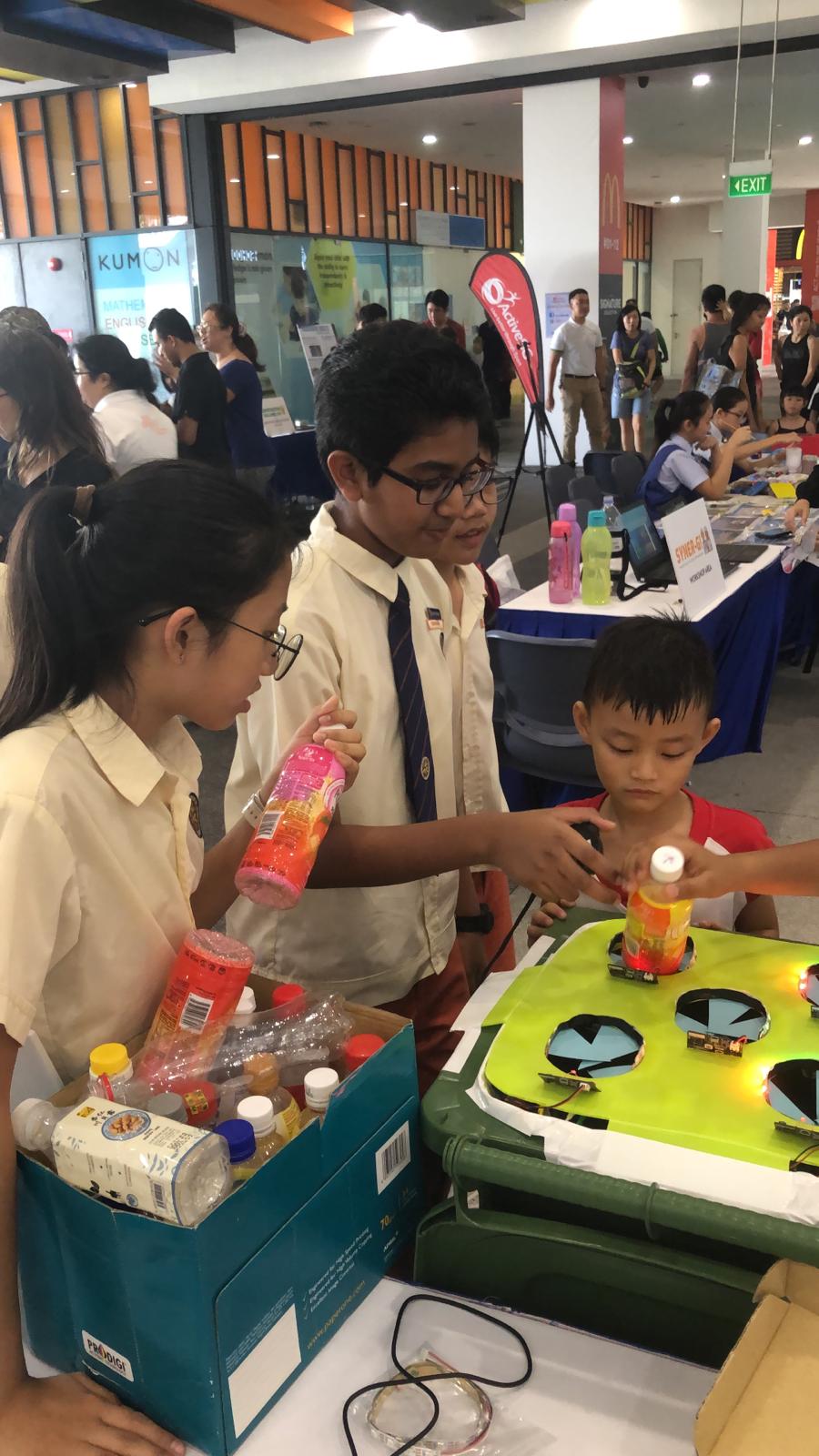
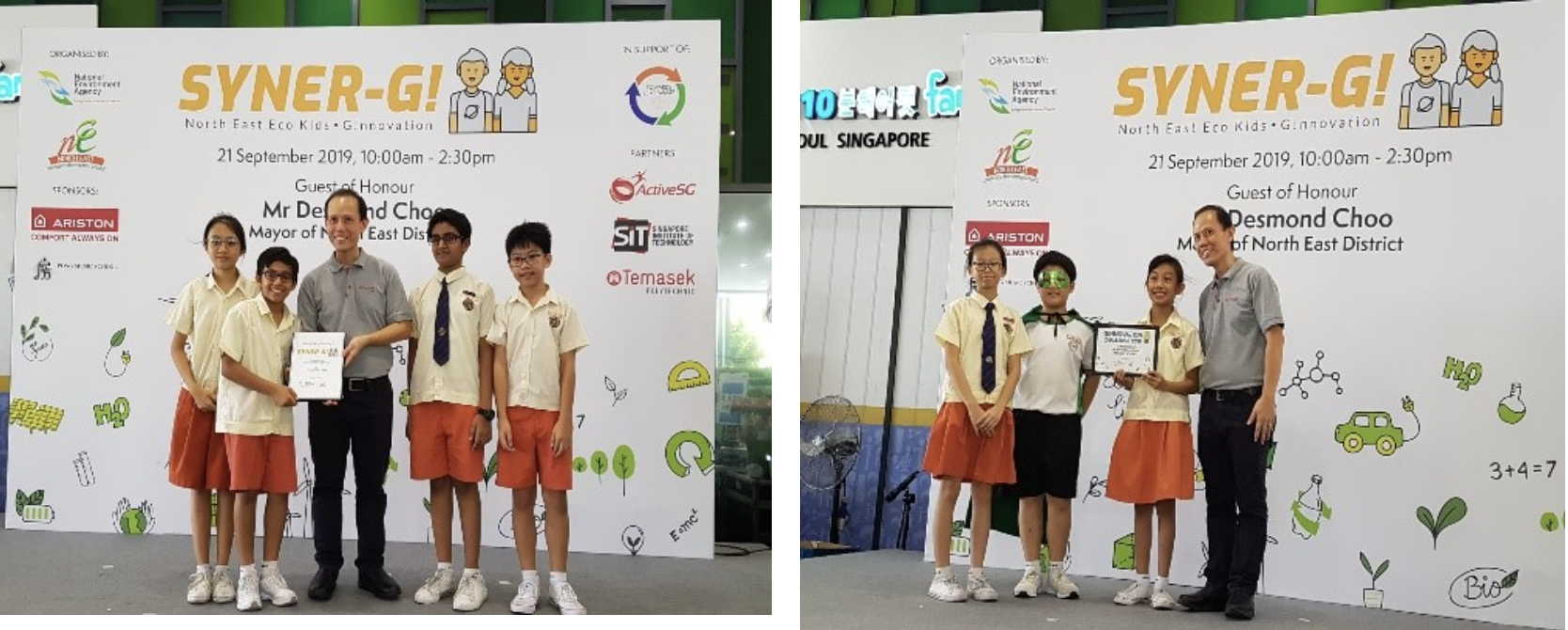
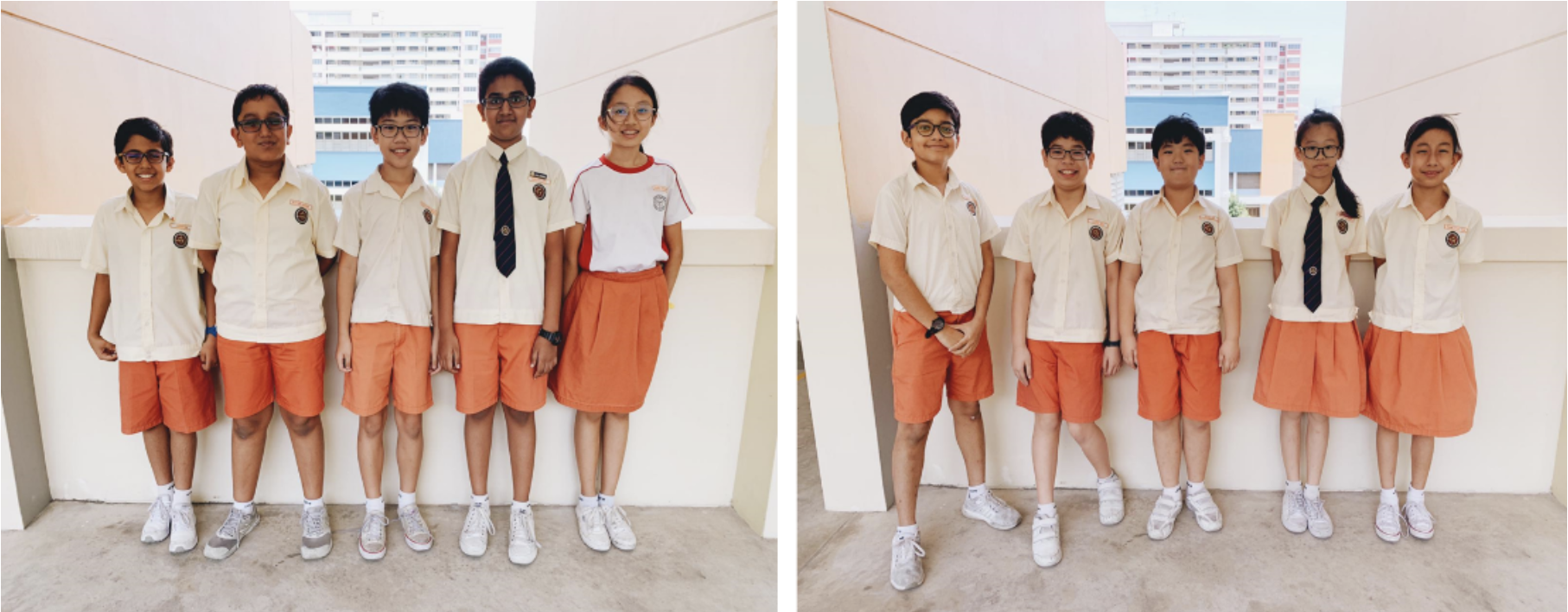
The Wonders of Kitchen Chemistry Camp
| Name of team lead(s) | Ms Diana Koh |
|---|---|
| Achievement/Award Attained | 1st Price |
Write-up: (About 150 words would suffice)
A group of 11 students – four Primary 4 students and seven Primary 5 students – took part in the “The Wonders of Kitchen Chemistry Camp” organized by the East Zone Centre of Excellence (COE) for Innovations in Science at Dunman Secondary School on 3 June 2019.
After being assigned into teams, the students were first treated to a fascinating presentation during which they learnt about the differences between the different types of frozen desserts and the steps to making ice-cream. It was then followed by a much-anticipated hands-on session on making their own ice-cream.
During the second activity, the students had the opportunity to engage in the science of paper chromatography. They learnt that the chromatography pattern obtained at the end of the process could reveal much about the composition of coloured dyes and such knowledge can even be used to solve crimes.
After a satisfying lunch, the students worked together to design an efficient cooking pan using the materials provided. The efficiency of their “cooking pan” (made from aluminium foil) was judged based on time taken to cook an egg in their improvised cooking pan.
Last but not least, along with an enlightening message on how Science plays an important role in helping to fight plastic waste pollution, the students learnt how to make edible water bottles – edible, biodegradable capsules which can contribute towards a more sustainable future.
Throughout the day, the teams of students at the camp were awarded points based on their teamwork and creativity, and one of our teams did well enough to impress the facilitating teachers and was honoured with the first prize.
At the end of the day, the students were tired but unanimously agreed that they had a very enjoyable day learning about Science concepts which are commonly observed in the kitchen and simple everyday materials!
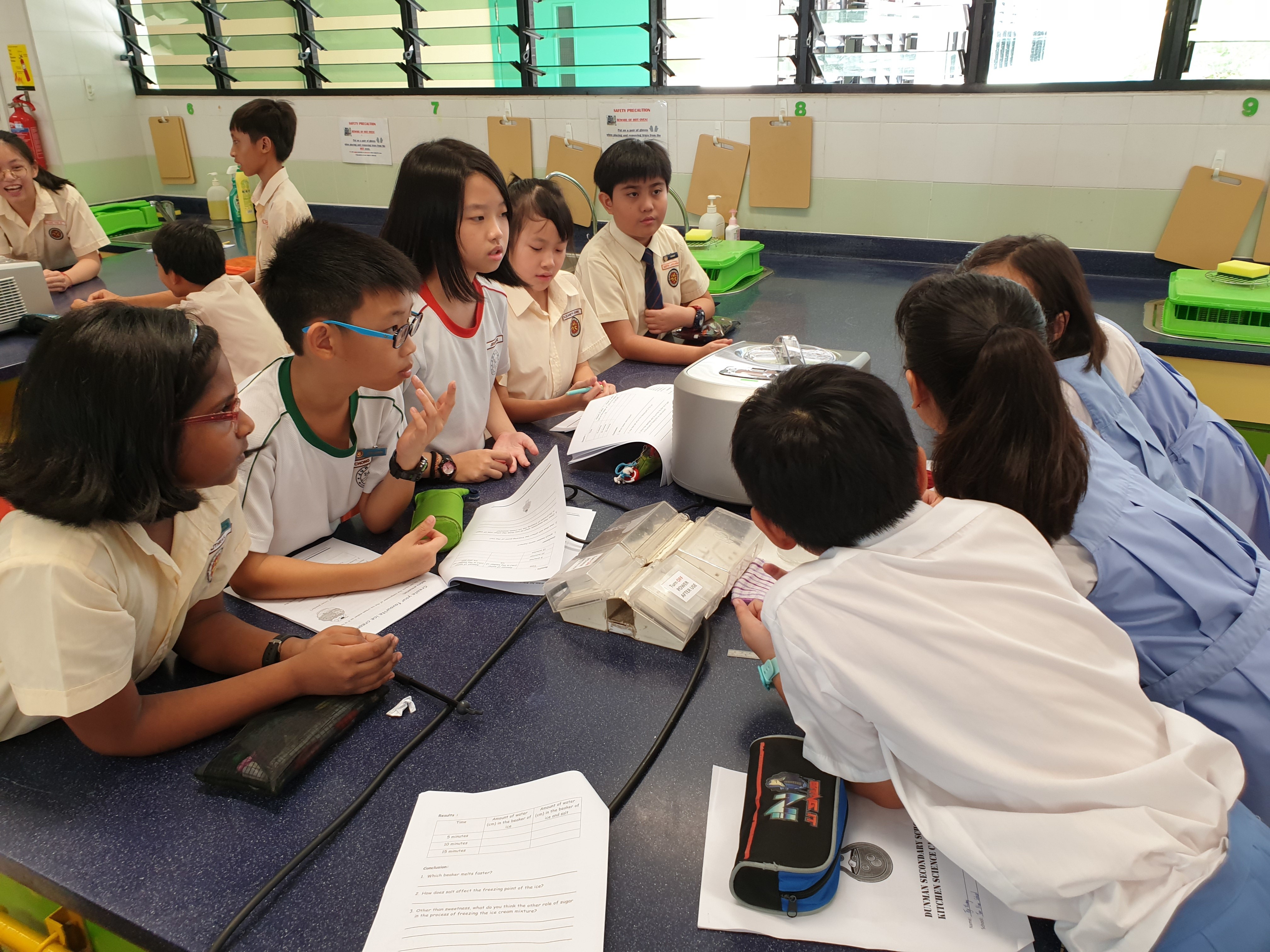
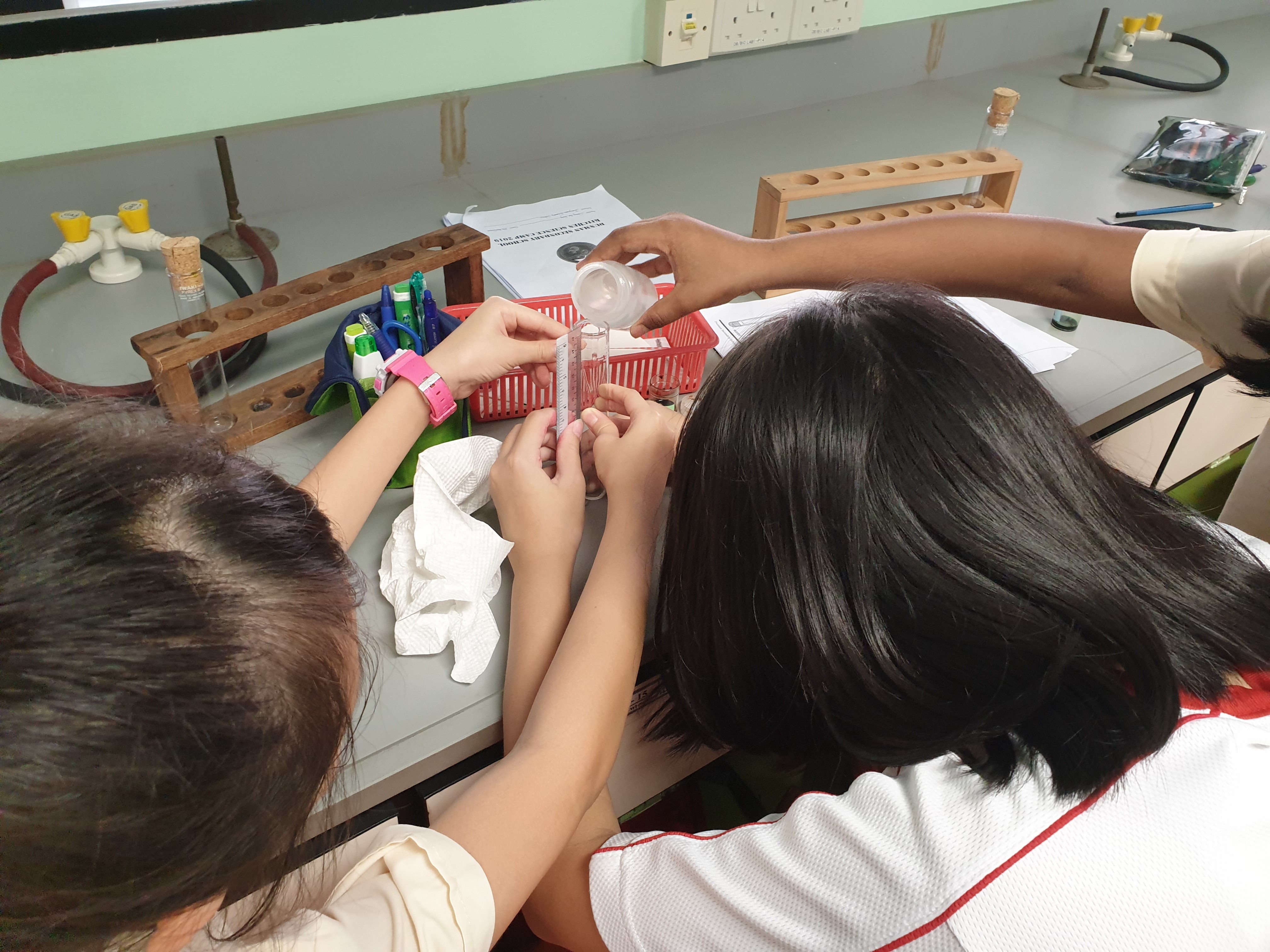
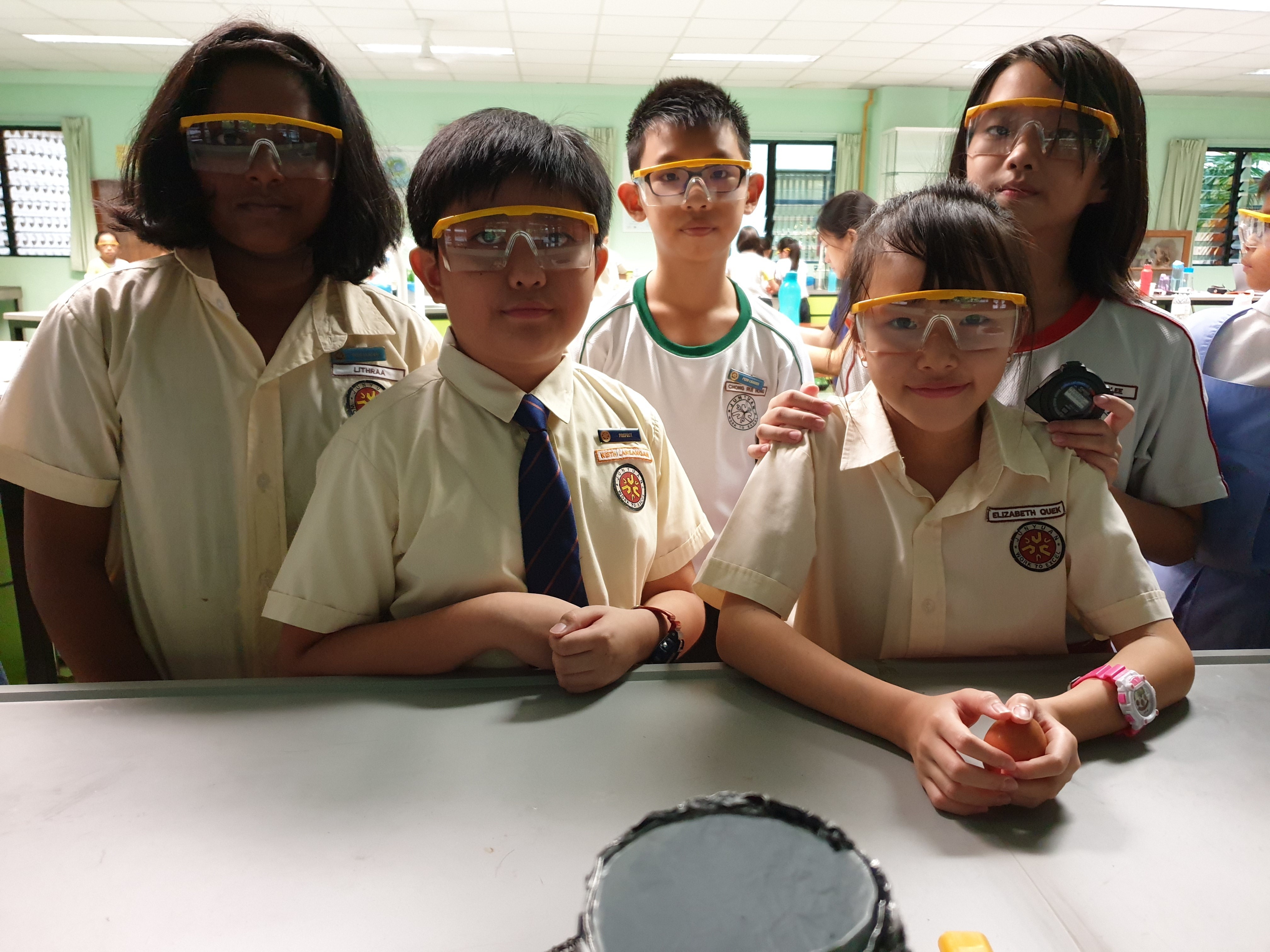
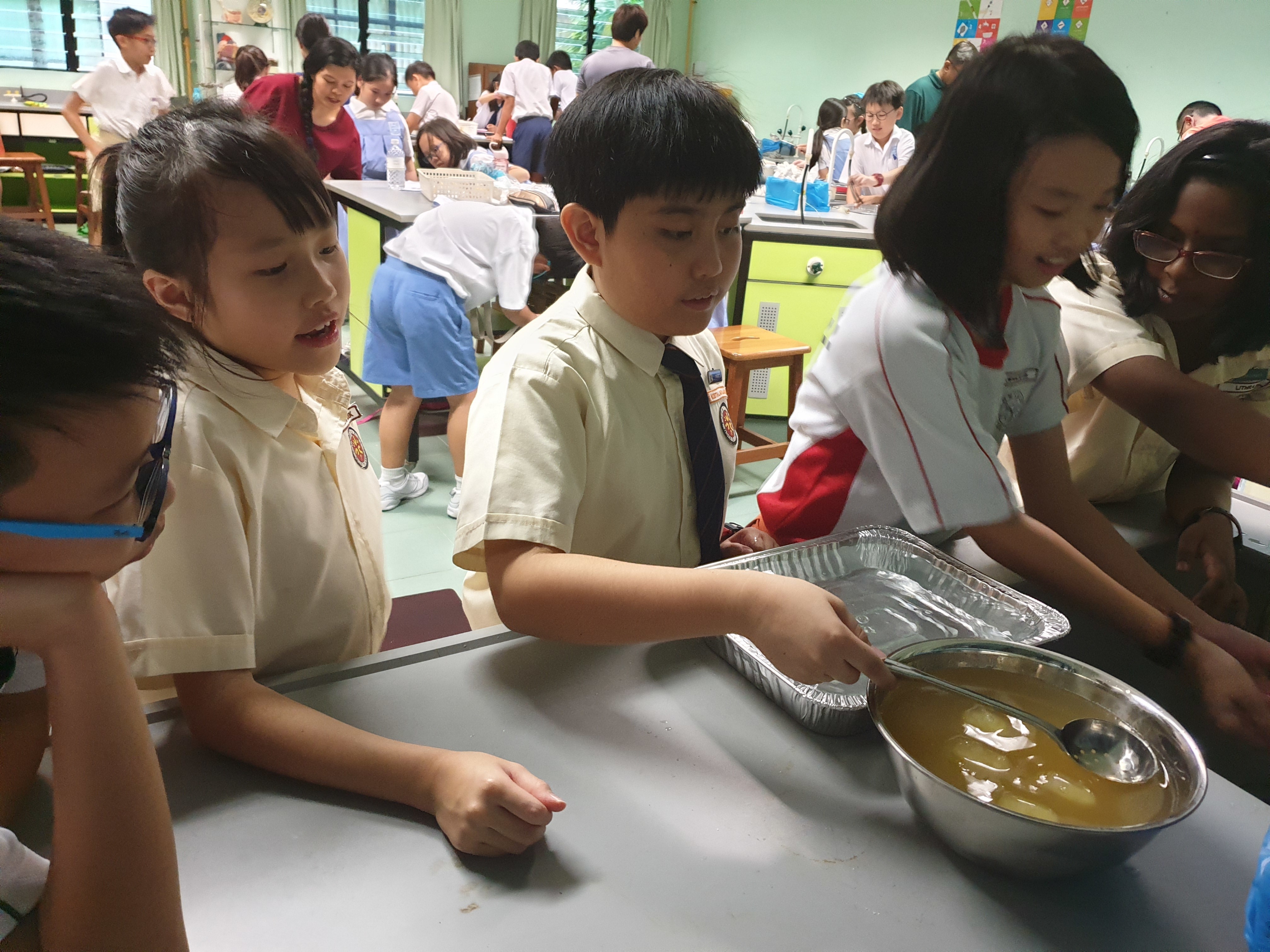
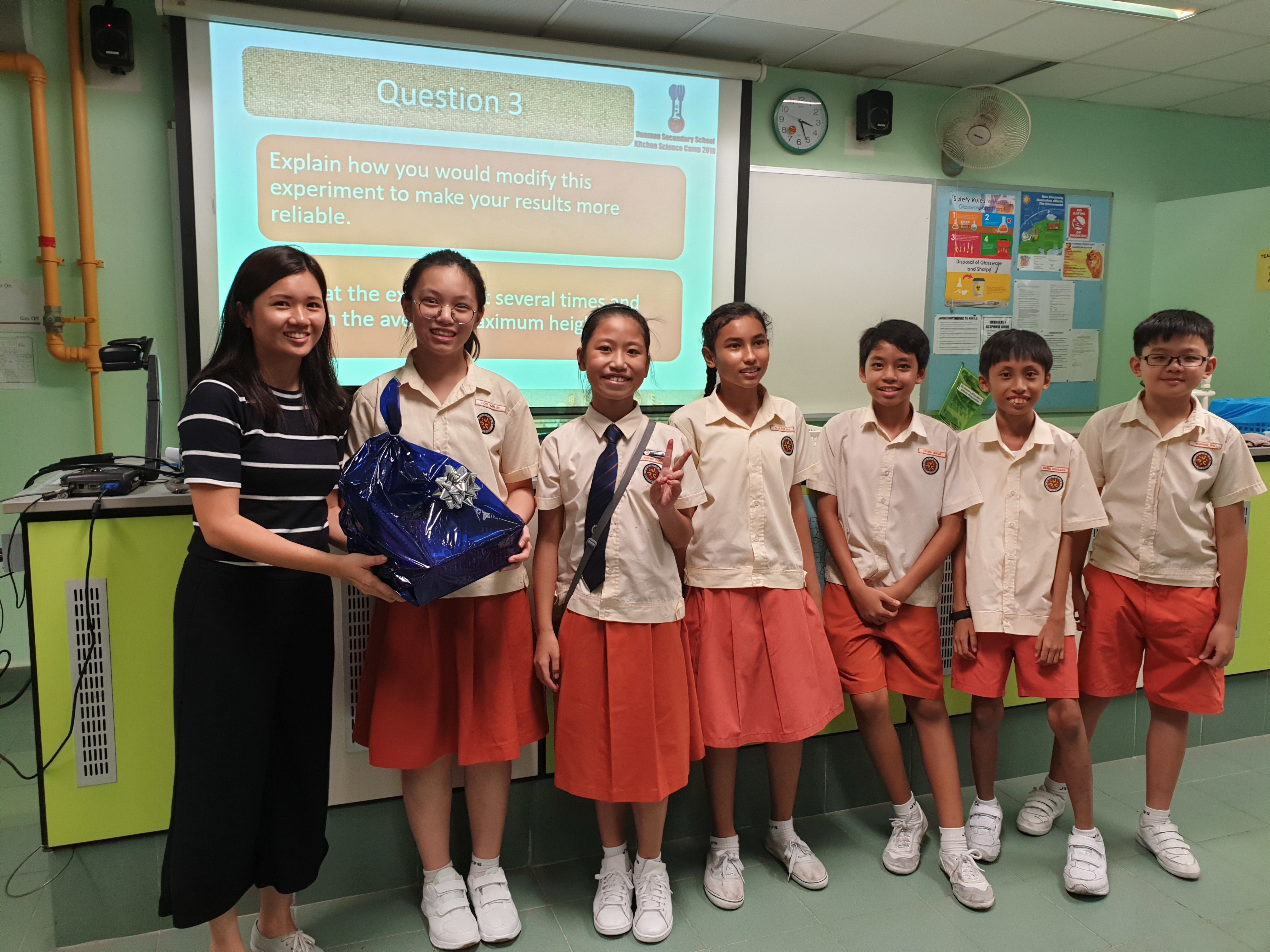
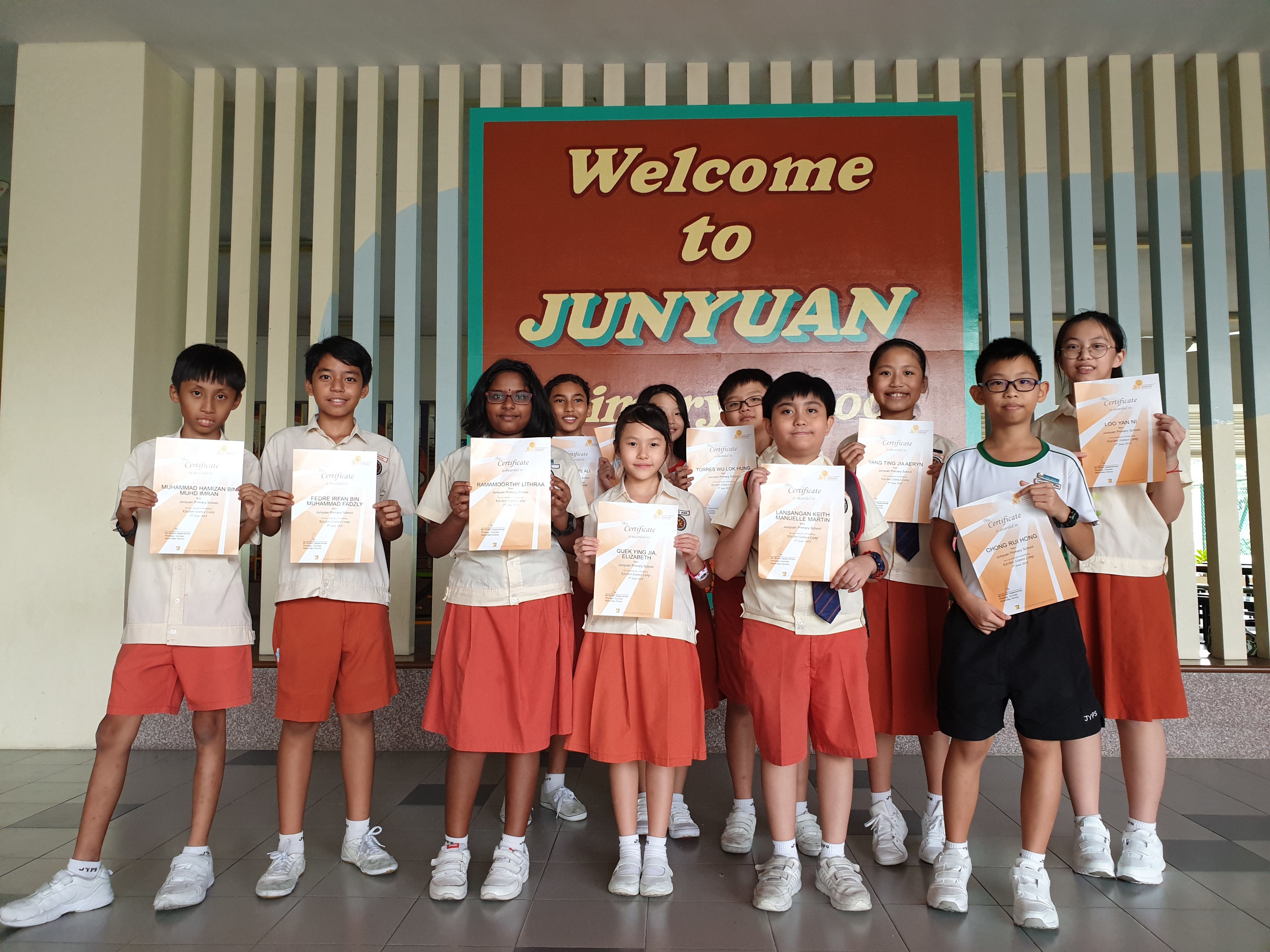
Note: Video not uploaded via Youtube
The students discussing about the steps to follow in the making of the edible water bottles.

